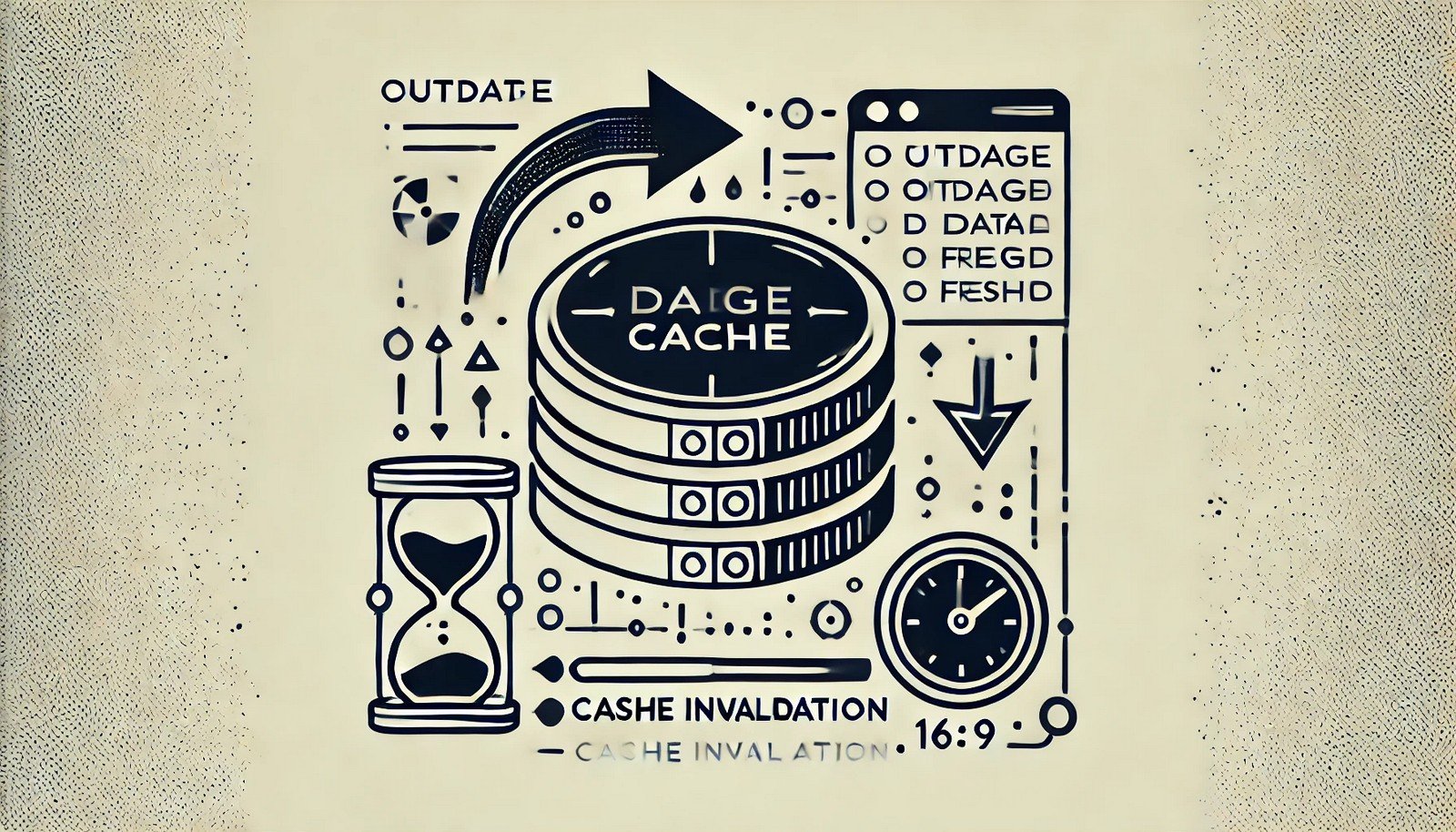Cache Invalidation
 (Representational Image | Source: Dall-E)
(Representational Image | Source: Dall-E)
Quick Navigation:
- Cache Invalidation Definition
- Cache Invalidation Explained Easy
- Cache Invalidation Origin
- Cache Invalidation Etymology
- Cache Invalidation Usage Trends
- Cache Invalidation Usage
- Cache Invalidation Examples in Context
- Cache Invalidation FAQ
- Cache Invalidation Related Words
Cache Invalidation Definition
Cache invalidation is a process in computer software where outdated or irrelevant data stored in a cache is removed to ensure that future data requests retrieve the most current and accurate information. This technique is crucial for maintaining data consistency between a cache and its data source. Various methods of cache invalidation include time-based expiration, manual invalidation, and event-driven invalidation. Its implementation is significant in distributed systems, web applications, and database systems to optimize performance while avoiding serving stale data.
Cache Invalidation Explained Easy
Imagine you have a lunchbox, and every day, you put fresh food in it. But if you forget to remove the old food, your lunchbox will have stale food. Cache invalidation is like cleaning out your lunchbox to ensure that every day, you only have fresh food to eat. In software, it helps make sure that computers don’t show old or wrong information.
Cache Invalidation Origin
The concept of cache invalidation originated with the early use of caching in computer systems to speed up data access. As systems became more distributed, ensuring consistency between the cache and the primary data source became a critical challenge, prompting the development of advanced invalidation strategies.
Cache Invalidation Etymology
The term derives from "cache," a temporary storage for quick data access, and "invalidation," meaning to make something no longer valid.
Cache Invalidation Usage Trends
With the rise of cloud computing, distributed systems, and high-performance web applications, cache invalidation has become increasingly vital. Modern trends emphasize intelligent invalidation strategies like adaptive caching, predictive invalidation, and the use of machine learning to minimize stale data while reducing system load.
Cache Invalidation Usage
- Formal/Technical Tagging:
- Performance Optimization
- Distributed Systems
- Data Consistency - Typical Collocations:
- "cache invalidation strategy"
- "distributed cache invalidation"
- "cache coherence and invalidation"
- "event-driven cache invalidation"
Cache Invalidation Examples in Context
- A content delivery network (CDN) invalidates cached web pages after updates to serve the latest content.
- In database systems, cache invalidation ensures data consistency after changes to underlying records.
- Online stores use cache invalidation to update product availability in real time.
Cache Invalidation FAQ
- What is cache invalidation?
Cache invalidation is the process of removing outdated data from a cache to ensure accurate data retrieval. - Why is cache invalidation important?
It maintains data consistency and prevents users from accessing outdated information. - What are common methods of cache invalidation?
Methods include time-to-live (TTL), manual invalidation, and event-driven invalidation. - What are the challenges of cache invalidation?
It is complex to implement in distributed systems, and poor invalidation can lead to stale data or excessive system load. - How does TTL help with cache invalidation?
TTL automatically expires cached data after a specified time, ensuring updates are reflected. - What is the difference between cache eviction and cache invalidation?
Eviction removes data due to storage constraints, while invalidation ensures data consistency. - How is cache invalidation used in web applications?
It updates cached resources like pages and images after content changes to reflect the latest state. - What is event-driven cache invalidation?
It triggers invalidation when specific events occur, such as data updates or user actions. - Can cache invalidation improve system performance?
Yes, by reducing redundant data fetches and ensuring up-to-date information. - What tools support cache invalidation?
Tools include Redis, Memcached, and CDN services like Cloudflare and AWS CloudFront.
Cache Invalidation Related Words
- Categories/Topics:
- Performance Optimization
- Data Management
- Web Development
Did you know?
Cache invalidation was famously described as one of the hardest problems in computer science, alongside naming things and handling concurrency. Its complexity arises from balancing system performance with data accuracy.
PicDictionary.com is an online dictionary in pictures. If you have questions or suggestions, please reach out to us on WhatsApp or Twitter.Authors | Arjun Vishnu | @ArjunAndVishnu

I am Vishnu. I like AI, Linux, Single Board Computers, and Cloud Computing. I create the web & video content, and I also write for popular websites.
My younger brother, Arjun handles image & video editing. Together, we run a YouTube Channel that's focused on reviewing gadgets and explaining technology.



Comments powered by CComment